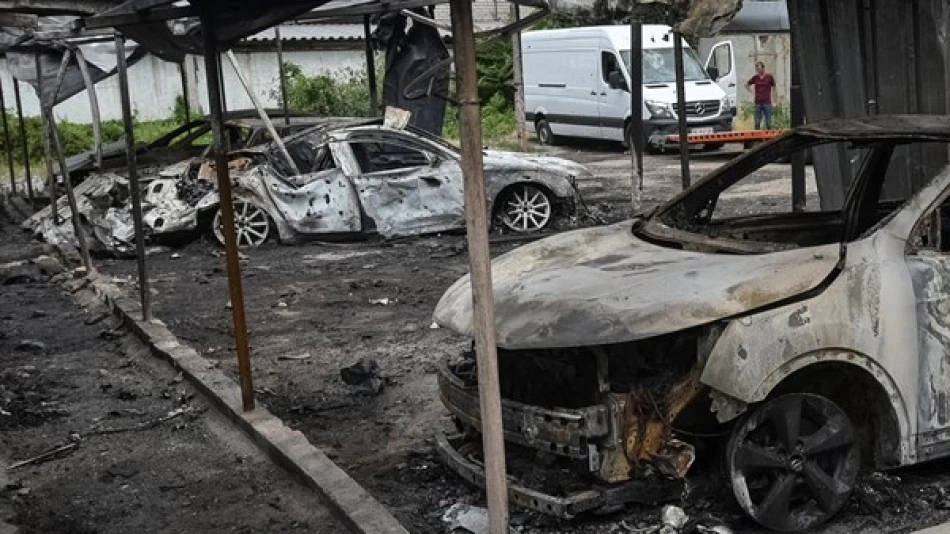
Russia Achieves Significant Progress in Ukraine's Offensive, Announces Advances
Russia Claims New Territorial Gains in Eastern Ukraine as Diplomatic Efforts Stagnate
Russian forces have reportedly captured two additional villages in eastern Ukraine, according to Moscow's Defense Ministry, marking continued battlefield advances while peace negotiations remain deadlocked. The claimed seizure of settlements in both Donetsk and Dnipropetrovsk regions signals Russia's persistent push to expand territorial control despite international sanctions and military aid flowing to Ukraine.
Strategic Significance of Dnipropetrovsk Advances
The Russian military announced via Telegram that its forces had taken control of Maliivka in the Dnipropetrovsk region and Zelenyi Hai in Donetsk. The Dnipropetrovsk advancement carries particular strategic weight, as Russia previously captured Dachnoye earlier this month—marking only the second settlement Moscow claims to control in this economically vital region.
Dnipropetrovsk's importance extends beyond mere territorial expansion. The region serves as a crucial industrial and logistical hub, housing significant metallurgical facilities and serving as a key transportation corridor. Any genuine Russian breakthrough here could potentially threaten supply lines supporting Ukrainian forces in the eastern theater.
Battlefield Momentum Amid Diplomatic Deadlock
These territorial claims emerge against the backdrop of stalled peace negotiations. The third round of Russian-Ukrainian talks concluded Wednesday in Istanbul without meaningful breakthrough, highlighting the growing disconnect between diplomatic efforts and military realities on the ground.
Russia's continued field advances suggest Moscow may be prioritizing territorial consolidation over immediate negotiated settlement. This pattern mirrors historical conflicts where parties seek to maximize bargaining positions through military gains before serious diplomatic engagement.
Implications for Regional Stability
The timing of these announcements reflects Russia's strategic communication approach—broadcasting territorial gains while diplomatic channels remain active. This dual-track strategy aims to demonstrate military capability while potentially pressuring Ukrainian negotiators.
For regional security architecture, sustained Russian advances in economically significant areas like Dnipropetrovsk could reshape post-conflict territorial arrangements and influence future diplomatic negotiations. The industrial capacity and infrastructure within these regions represent long-term strategic assets that extend beyond immediate military value.
Broader Geopolitical Context
These developments unfold as international support for Ukraine continues, with Western allies providing military aid and imposing economic sanctions on Russia. However, the gap between diplomatic initiatives and battlefield realities suggests that military dynamics may ultimately determine negotiating parameters more than international mediation efforts.
Most Viewed News

 Layla Al Mansoori
Layla Al Mansoori






